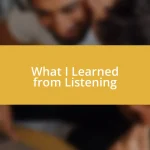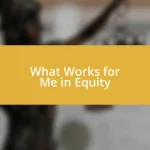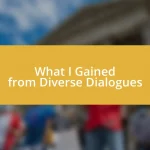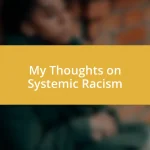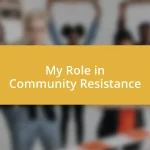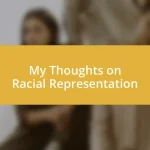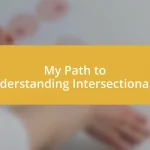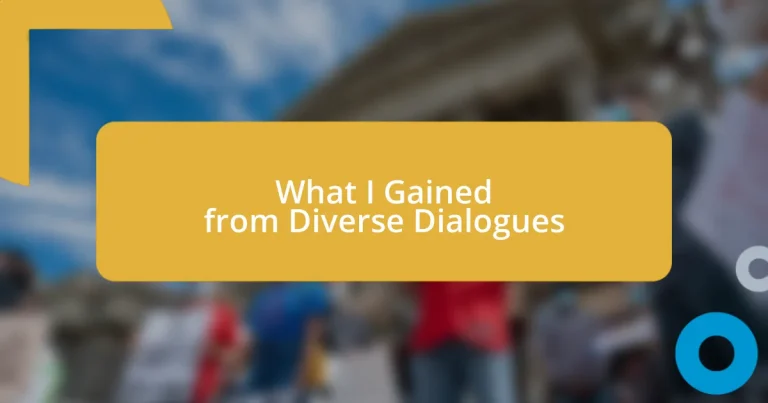Key takeaways:
- Engaging in diverse dialogues enhances understanding and empathy by revealing different perspectives and shared experiences.
- Techniques such as asking open-ended questions and practicing active listening can transform ordinary conversations into meaningful exchanges.
- Overcoming barriers to dialogue, like fear of misunderstanding and power dynamics, is crucial for inclusive and authentic discussions.
- Authentic storytelling fosters deeper connections and empathy, allowing participants to find common ground in their experiences.
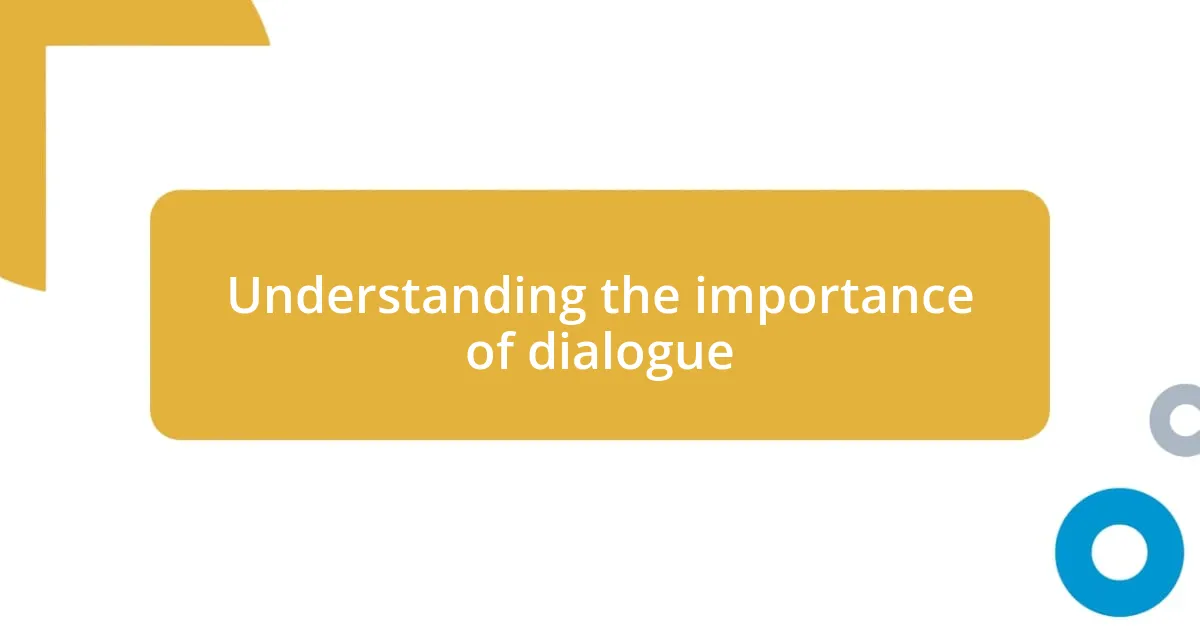
Understanding the importance of dialogue
Dialogue is the heartbeat of understanding; it creates a space where ideas can collide and coexist. I remember a conversation I had with a friend from a totally different background. We found common ground and learned so much from each other—it felt like peeling back layers of an onion, revealing deeper insights with each layer we explored together.
Engaging in diverse dialogues enriches our perspective, allowing us to appreciate viewpoints we might never have considered. There was a moment during a community discussion where I listened to a local artist share their struggles with acceptance. It really hit me—how can we ever hope to empathize without opening ourselves up to those narratives that shape our world?
Moreover, dialogue fosters connection and builds bridges across divides. Have you ever noticed how a simple conversation about what matters to someone can change your entire outlook? I certainly have; it’s like the fog lifting, and suddenly, you see the world in vibrant detail. It’s these conversations that remind us of our shared humanity and the beauty of our differences.
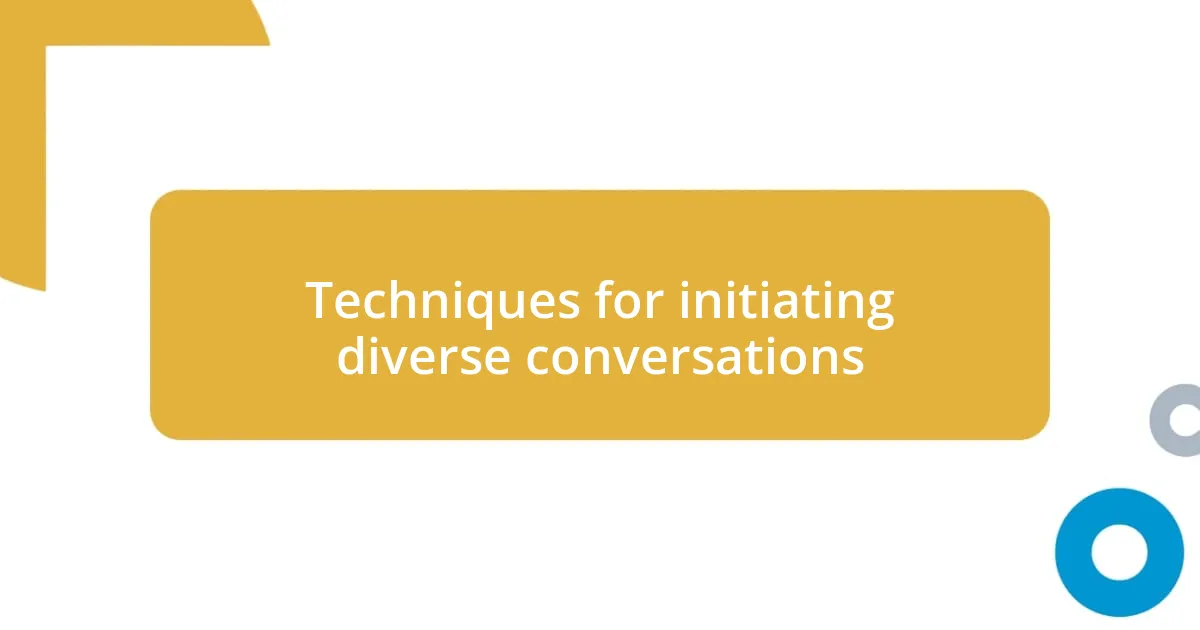
Techniques for initiating diverse conversations
When it comes to initiating diverse conversations, curiosity is your best friend. I’ve often found that approaching someone with genuine interest in their experiences opens up a world of dialogue. For instance, I once struck up a chat with a colleague during a lunch break; I asked about their cultural traditions, and what started as small talk transformed into a rich exchange of stories that deepened our understanding of each other.
Here are some techniques I’ve picked up along the way:
- Ask open-ended questions: Encourage others to share by asking questions that require more than a yes or no answer.
- Be mindful of body language: Show openness through your gestures; leaning slightly in can invite the other person to share more.
- Share your own experiences first: This can set a tone of vulnerability, making others feel safe to open up.
- Practice active listening: Show that you value their words by maintaining eye contact and summarizing what they’ve shared.
- Create a safe space: Foster an environment where different opinions are respected and valued, allowing for authentic dialogue to unfold.
These techniques, when applied thoughtfully, can transform ordinary interactions into meaningful conversations, expanding our horizons in ways we might never anticipate.
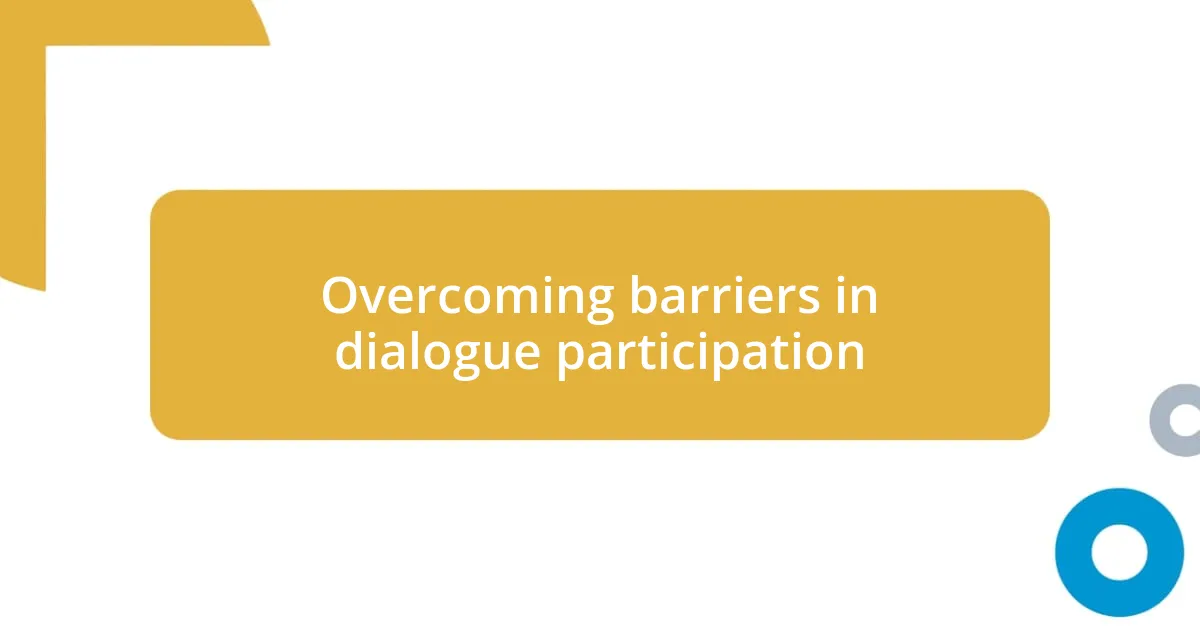
Overcoming barriers in dialogue participation
Overcoming barriers to participation in dialogue can sometimes feel like navigating a complex maze. I often find that people hesitate to engage due to fear of misunderstanding or being judged. For instance, during a community workshop, a participant held back from expressing their thoughts, worried they might be labeled naïve or uninformed. Once I shared my own initial hesitations, the atmosphere shifted. It became clear that vulnerability can break down walls, encouraging others to voice their perspectives without fear.
Another vital aspect is recognizing and addressing the power dynamics in conversations. I recall an instance where I facilitated a discussion in a group where some voices seemed louder than others. A respectful reminder for individuals to share space created an opportunity for quieter participants to express themselves. This moment taught me that everyone’s voice deserves to be heard, and sometimes, stepping back can empower those who might otherwise remain silent.
Additionally, creating inclusive spaces is essential for fruitful dialogue. I’ve seen firsthand how small gestures, like arranging seating in circles rather than rows, can promote a sense of equality. The more we can adjust our environments to welcome different voices, the richer our conversations will be. After all, engaging with varied perspectives is not just about talking; it’s about listening, appreciating, and growing together.
| Barriers | Strategies to Overcome |
|---|---|
| Fear of misunderstanding | Share personal stories to ease tension |
| Power dynamics | Encourage equal participation |
| Exclusivity of space | Create inviting environments |
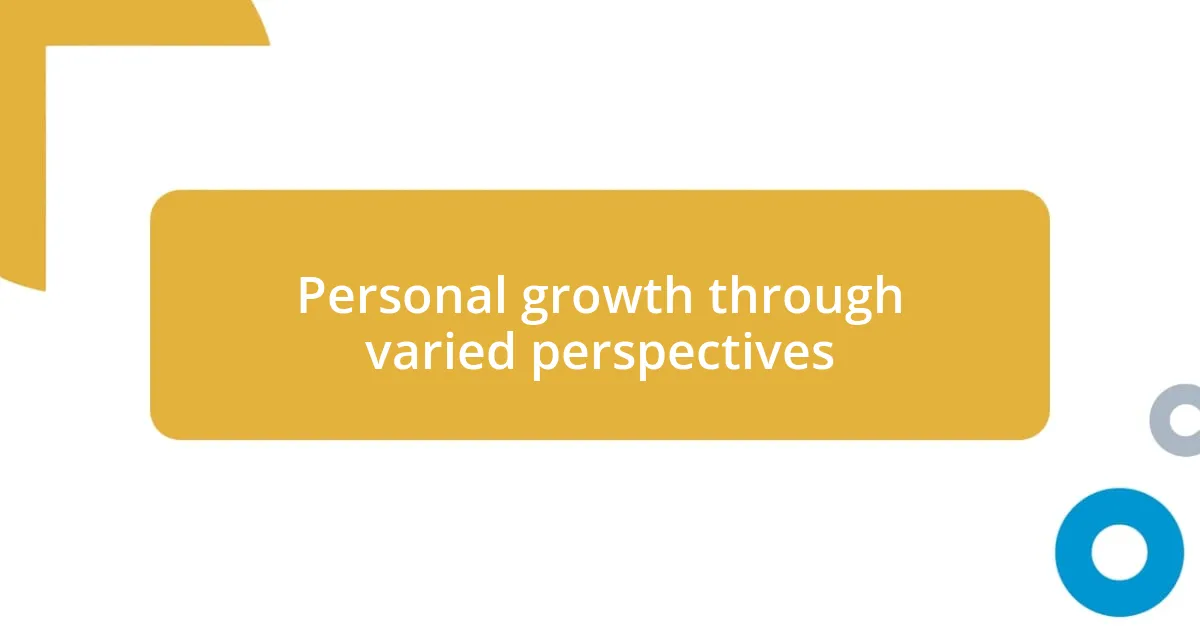
Personal growth through varied perspectives
Engaging with varied perspectives has profoundly influenced my personal growth. There was a time when I felt set in my ways, almost rigid in my thinking. But after participating in a multicultural festival, I found myself immersed in conversations that challenged my views. Listening to stories of struggle and triumph from individuals whose lives were so different from mine opened my eyes. It made me realize that every viewpoint holds a piece of truth, urging me to reflect on my own beliefs.
I’ve also had moments where I felt inadequate or even defensive, particularly during discussions about sensitive topics. I remember a heated debate about climate change at a community forum. Rather than reacting emotionally, I chose to step back and listen. This choice enriched my understanding and helped me connect with others on a shared concern for our planet. Why do we often forget that vulnerability can be our greatest teacher? It was in that moment of openness that I learned the value of patience and empathy as tools for growth.
I’ve come to treasure the richness that comes from diverse dialogues. Just last month, I participated in a book club featuring authors from various backgrounds. The insights people shared not only deepened my appreciation for the stories but also revealed the complexity of human experiences. I found myself asking, how do our backgrounds color our understanding of the world? Discovering those layers has continuously reshaped my perspective, pushing me to grow in ways I never anticipated. Each interaction becomes a lesson, helping me evolve into a more empathetic and well-rounded individual.
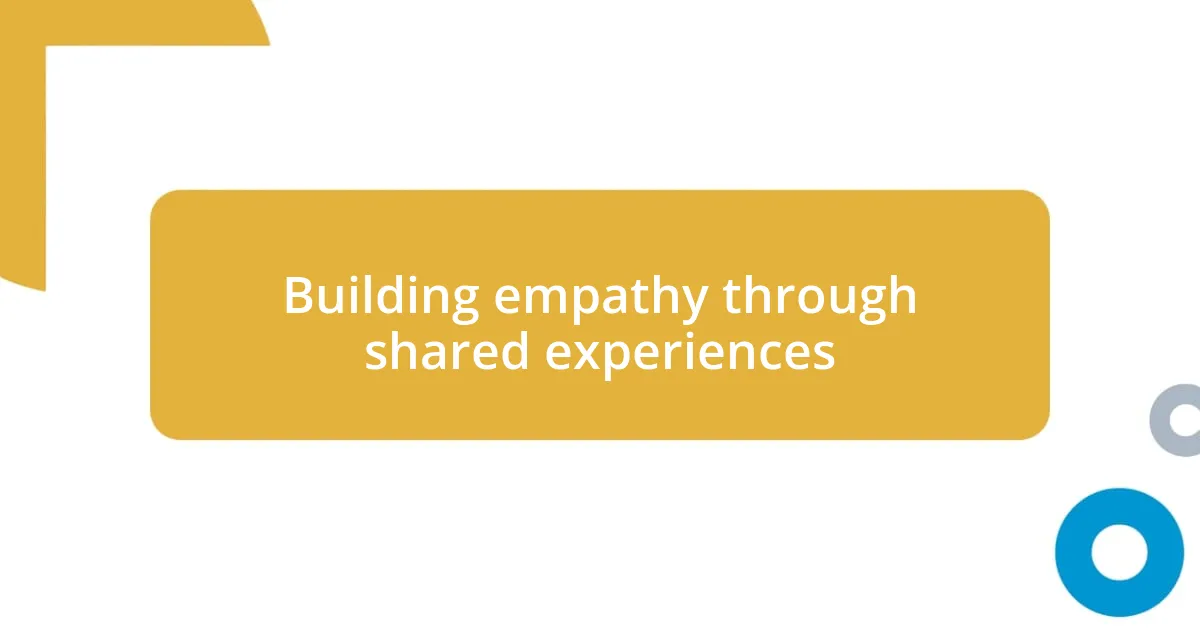
Building empathy through shared experiences
Engaging in dialogues packed with shared experiences has a unique way of building empathy among participants. I recall attending a local storytelling event where individuals from diverse backgrounds shared their life challenges. Listening to a woman recount her journey as an immigrant resonated deeply within me. I found myself reflecting on my own experiences of feeling like an outsider at times. This connection made me realize that empathy often blossoms when we recognize the common threads in our stories, regardless of our different backgrounds.
There was a moment in that storytelling session when a participant opened up about their struggle with mental health. I could feel the tension in the room shift dramatically. Everyone sat in rapt attention, nodding, and even teary-eyed. It became evident that by sharing these raw experiences, we were not just listening; we were collectively validating one another’s feelings. Have you ever felt the weight of shared vulnerability? That evening, I understood how such moments can forge powerful bonds, making us feel less alone in our struggles.
Reflecting on these experiences has led me to appreciate the importance of authentic storytelling in building empathy. When we allow ourselves to be vulnerable and share our personal narratives, we invite others to do the same. I often think back to a community meeting where people dared to share their fears about the future. By connecting over these shared uncertainties, we found comfort in our solidarity. It prompts me to wonder—what if we all made more room for these conversations in our lives? I believe fostering such dialogues can help heal divides, enriching our communities and relationships deeply.

